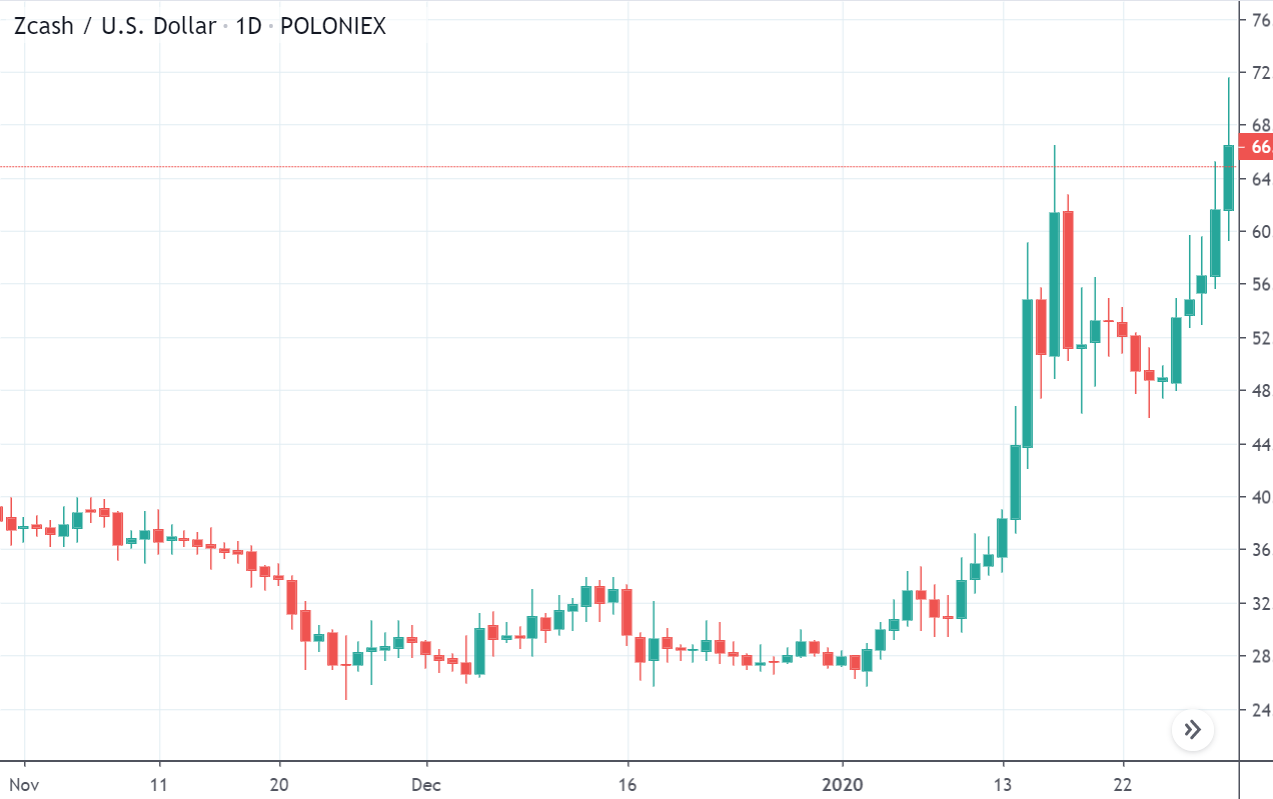Zcash Centralization Criticisms Resurface Following Funding Vote
Zcash can't shake the perception that it's centralized.

Share this article
Zcash’s recent vote to redistribute a fifth of its block reward to development funding reignited centralization criticisms. Here are the arguments.
Zcash Funding Scheduled to Expire
Zcash initially launched in 2016 with a novel funding mechanism — the Founder’s Reward. 20% of the block reward was allocated to the project’s founders to incentivize them to continue building the project.
The Founder’s Reward was set to expire this November, in line with the Zcash halving. This prompted the community to find new ways to continue funding Zcash development while encouraging decentralization away from the project’s founding team.
Vote for Continued Funding
Sentiment around the vote was first collected in November 2019, including miner signaling, forum polls, a community advisory panel, and a Zcash holder poll, which resulted in the options for January’s vote.
On Jan. 29, the Zcash community finalized a vote to distribute 20% of the block reward to another development fund, expiring at the next halving in 2024. The fund will amount to 21,600 ZEC per month, or about $1.4 million at $65 per ZEC.
Electric Coin Company (ECC), the company which historically has been responsible for the bulk of the project’s development, will receive 35% of these funds. The Zcash Foundation, a non-profit serving the protocol’s users, will receive 25%.
The largest portion is allocated to “Major Grants,” a program administered by the foundation which funds third-party development for Zcash, receiving 40% of the fund. Funding is capped at $700,000 for each of these divisions per month.
87% of participants voted in favor of the proposal, which comprised 88 voters from the Zcash forums along with stakeholders from a “community advisory panel.”
Centralization Criticisms
In response to the vote, several prominent members of the crypto community called the decentralization of the project into question. These critics argue that ECC, the for-profit entity pushing forward much of the development of the coin, still holds too much power.
“You don’t become more decentralized by replacing your soon-to-be expired founder’s reward with a mining tax that goes directly to the ZCash Foundation’s development fund,” said StopAndDecrypt, a popular pro-Bitcoin pseudonym.
Crypto Briefing reached out to StopAndDecrypt directly, who had this to say of the vote:
“The bitcoin protocol gets worked on without these extreme measures. If other projects can’t garner that kind of attention then maybe there’s an issue with that project.”
These concerns are exacerbated by sentiment around custody of the “Zcash” trademark. To some, the idea of securing intellectual property around an open-source project is antithetical to the decentralization movement, especially given the precedent set by Bitcoin.
However, the Electric Coin Company transferred these trademark rights to the Zcash Foundation in November 2019, with both projects sharing bilateral power to enforce and protect the mark, addressing some of these concerns.
Another incident that raised similar scrutiny was a counterfeiting vulnerability remediatied in February of last year. The exploit could have allowed an attacker to create an infinite amount of ZEC, but “discovery of the vulnerability would have required a high level of technical and cryptographic sophistication that very few people possess.” In other words, the only party able to identify and address the exploit was the ECC.
The perception that the ECC still has disproportionate control of Zcash remains. As said by Udi Wertheimer, a self-proclaimed Bitcoin maximalist:
“It’s a sticky situation. On the surface level, one would say that ‘dev fund bad,’ while on the other hand I see no way for ZEC to stay above water in its current state without the high-pay team currently helping to maintain it.” He adds, “can Zcash be maintained by anyone else? Not really, no one understands how it works except for ECC.”
Support from the Zcash Community
Others, including the market more broadly, saw the vote as a positive for the project. Steven McKie, the CEO of crypto fund Amentum, said:
“Zcash did exactly what it needed to. They grew, they took feedback on sentiment, they listened to the community. Collectively I think this was the best way forward for ZCash.”
And, at least in the short-term, the markets appear to agree. From November to the end of December, ZEC was trading at an average price of $32. Leading up to the January vote, prices began to climb rapidly, doubling by the end of the vote.

Chris Burniske, a partner at Placeholder venture fund, echoed the market’s favorable reaction to the vote.
Now that we know @ElectricCoinCo will continue to get funded & 3rd party devs will have access to 40% of non-miner block rewards, it's nice to see the market buoying $ZEC (> 2x in 1 month).
We'll look back on $ZEC as one of the most oversold quality coins of the 2018/2019 bear.
— Chris Burniske (@cburniske) January 29, 2020
Even then, other don’t think it will last. The former lead maintainer of Monero, Zcash’s largest competitor by market capitalization, had a different view on how the market would react in the long-term:
“I suspect that the market will prove to be rational, remaining disinterested in a centralised science project,” said Riccardo Spagni. He added, “plenty of excellent work being done by cypherpunks in this space — ZCash just doesn’t fall into that.
Progress Toward Decentralization
Despite the criticism, Zcash is making progress. Power once squarely rested in the ECC and its founder Zooko Wilcox. Now, it seems the Zcash Foundation is taking a more active role in leading the project, said supporters.
“It’s been tense and contentious and the uncertainty is hard in and of itself. Despite my cumulative frustration after (what has felt like) rehashing the same 3-5 tradeoffs ad nauseam,” said Sonya Mann, communication manager for the foundation, in a correspondence with Crypto Briefing. “I am very relieved that we have much more clarity now. I just wrote in the ZF newsletter that we’re ‘hashing out implementation details’ and that’s true. It’s tremendous progress.”
More still, with the greatest portion of funding in the latest proposal are earmarked for third-party developers, technical teams outside of the ECC that may take on a greater role in advancing the project in the future.
Nonetheless, the criticisms around centralization may be warranted, especially given the critical role that the Electric Coin Company still plays in Zcash development. The project is still exposed to the risks of relying on one entity until power shifts into the hands of the open-source community. And that’s particularly troublesome for a privacy project, which may get pressured by regulators.
But, there’s progress. As Zcash Foundation Executive Director Josh Cincinnati summarized in his State of the Foundation address:
“Last year, I said ‘it’s critical to reflect on where power — and expertise — sits in the Zcash ecosystem today.’ Last year that power squarely rested with the ECC, this year has demonstrated that some of that power sits with the Foundation as well. In the coming years, I’m hopeful it will shift to others still.
Share this article
